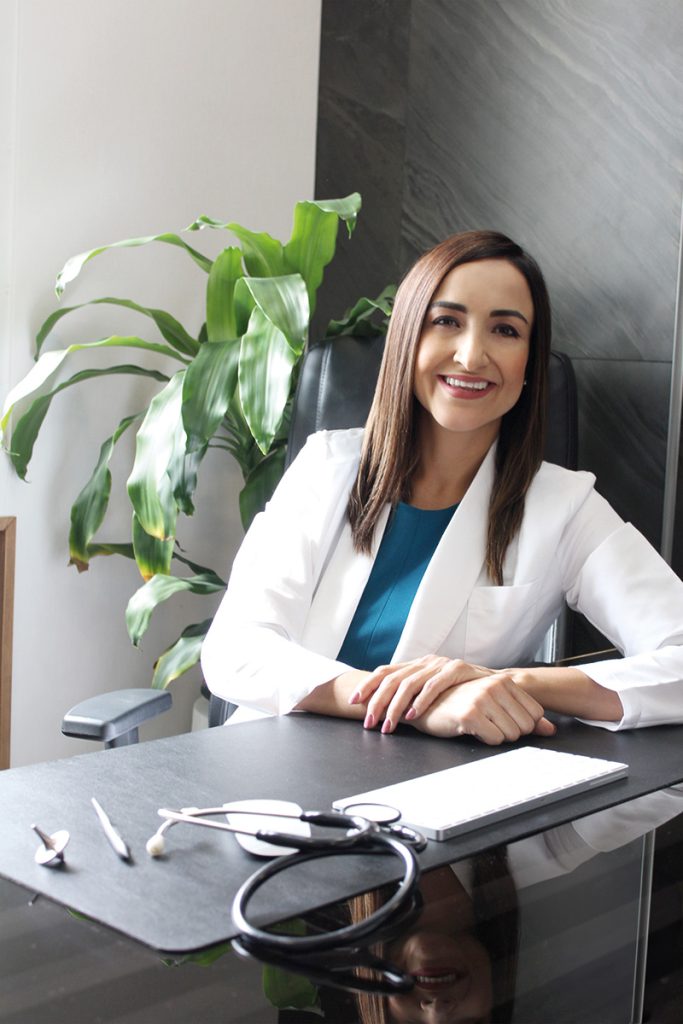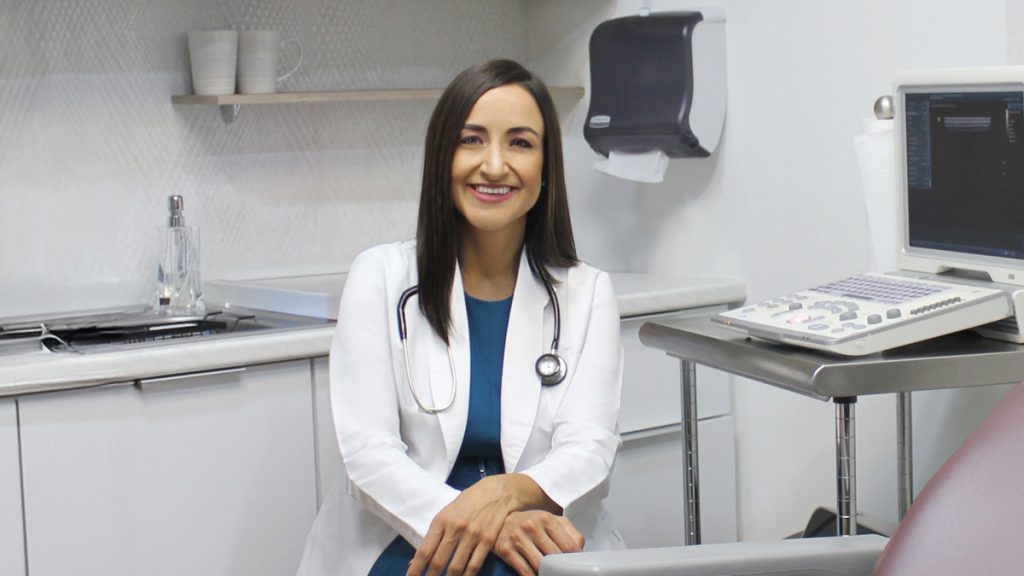En el mes de la concientización sobre el cáncer de mama, la cirujana oncóloga Erika Guevara nos explica cómo enfrentar a la enfermedad
“Una carrera que te enseña todos los días a valorar tu vida, a valorar las familias y a dar un poquito de esperanza”, es como la doctora Erika Yanet Guevara Ramírez define su especialidad, oncóloga quirúrgica.
Egresada del Centro Médico Nacional Siglo XXI y con varios años de práctica, la doctora Guevara sabe que tras la detección de un cáncer de mama lo primero y más importante es salvar la vida de la paciente, y que lo mejor es detectarlo a tiempo, pues entre más temprano, las probabilidades a favor serán más altas.
Por lo anterior es que nos recuerda que a partir de los 18 años de edad debemos acudir a revisión, realizarnos los ultrasonidos y cuando llegue el momento hacer las mastografías necesarias.
También es primordial acudir con un especialista en caso de notar algo irregular, “así puedes prevenirlo, detectar lesiones tempranas o un cáncer”, reafirma la especialista, nacida en Guadalajara.
Tiempo de prevención
Durante la charla con Visionarias, Guevara Ramírez, nos indicó las etapas en que debemos actuar para mantener unas mamas sanas.
- Desde los 18 años, nos dice, la mujer tiene que aprender a hacerse exploraciones mamarias y saber sus riesgos personales, es decir, si en la familia ya existen casos de cáncer de mama, de ovario u otros.
- En caso de no existir ningún riesgo, entonces hasta los 40 años de edad comenzar con las mastografías anuales.
- Y entre los 48 y los 55 años ser constantes en las revisiones, pues es en este lapso donde las estadísticas muestran una tendencia alta en casos de cáncer mamario.
Cirugía oncológica
En caso de que el diagnóstico no sea el que esperamos, la especialista nos cuenta que actualmente existen una serie de tratamientos no tan radicales, incluso las cirugías son mucho menos agresivas que en años anteriores, aunque la clave está en que nos demos cuenta del problema a tiempo.
“La cirugía es parte del tratamiento, consta de hacer una mínima invasión, cicatrices escondidas, cuidar lo estético, siempre y cuando el objetivo sea la curabilidad del cáncer”, y para lograrlo está la cirugía oncológica, que ayuda a que la paciente mantenga una autoestima positiva y una mejor actitud ante la enfermedad; obviamente también vendrá la quimioterapia, inmunoterapia o la radiación, en caso de ser necesario, pero eso se va dirigiendo según avanza el paciente.
Y es precisamente a esas pacientes a quienes pide cuidarse y estar siempre atentas en caso de notar algo diferente en su cuerpo.
“Tenemos que cuidarnos mucho y estarnos vigilando porque la familia depende de nosotros, si nosotros estamos bien, nosotros podemos cuidarlos y si no nos cuidamos, nos tendrán que cuidar… Si yo me cuido, los cuido a ellos también”, afirma.

If I take care of myself I take care of them too’
In breast cancer awareness month, surgical oncologist Erika Guevara explains how to deal with the disease.
“A career that teaches you every day to value your life, to value families, and to give a little bit of hope” is how Dr. Erika Yanet Guevara Ramirez defines her specialty as a surgical oncologist.
A graduate of the Centro Medico Nacional Siglo XXI and with several years of practice, Dr. Guevara knows that after the detection of breast cancer, the first and most important thing is to save the patient’s life and that the best thing is to detect it early, because the earlier it is detected, the higher the chances are.
For this reason, she reminds us that from age 18, we should go for a check-up, have ultrasounds, and, when the time comes, have the necessary mastographies.
It is also essential to go to a specialist in case you notice anything irregular, “so you can prevent it, detect early lesions or cancer,” reaffirms the specialist, born in Guadalajara.
Time for prevention
During the talk with Visionarias, Guevara Ramirez told us the stages we must act in to maintain healthy breasts.
- From the age of 18, she says, women must learn to have breast examinations and know their risks, that is, if there are already cases of breast, ovarian, or other cancers in the family.
- If there is no risk, then up to the age of 40 years, begin with annual mastographies.
- And between 48 and 55 years of age, to be constant in the revisions since it is in this period where the statistics show a high tendency in breast cancer cases.
Oncological surgery
Suppose the diagnosis is not what we expect. In that case, the specialist tells us that currently, there are a series of not-so-radical treatments, even surgeries, that are much less aggressive than in previous years, although the key is that we realize the problem in time.
“Surgery is part of the treatment; it consists of making a minimal invasion, hidden scars, taking care of the esthetic aspect, as long as the objective is to cure cancer,” and to achieve this, there is oncological surgery, which helps the patient to maintain positive self-esteem and a better attitude towards the disease; there will also be chemotherapy, immunotherapy or radiation, if necessary, but this is directed as the patient progresses.
And it is precisely those patients she asks to take care of themselves and always be alert in case they notice something different in their body.
“We have to take good care of ourselves and be vigilant because the family depends on us; if we are well, we can take care of them, and if we don’t take care of ourselves, they will have to take care of us… If I take care of myself, I take care of them, too,” she says.

